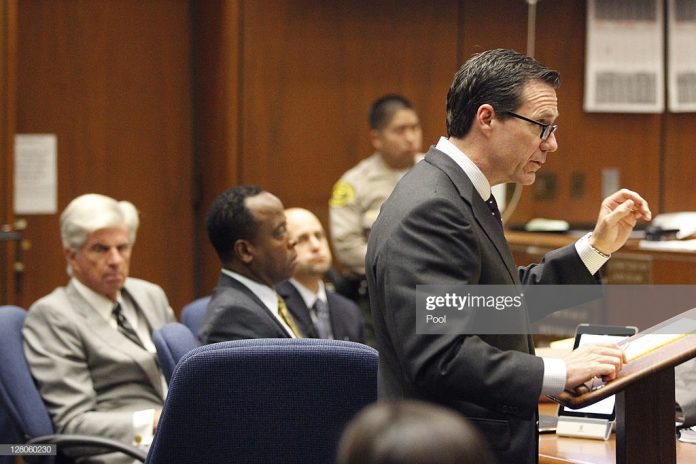This article on ‘Prosecuting Agencies in India’ has been written by Nishant Vimal, a 3rd-year student from Symbiosis Law School, Hyderabad. The author discusses various kinds of Prosecuting Agents and their function in the Criminal Justice System.
Introduction
Prosecutors hold a commanding position and play an essential role in the Criminal Justice System. The Code of Criminal Procedure, 1973 provided the basic framework of the hierarchy of criminal courts as well as Public Prosecutors. This law also governs the enforcement of the substantive criminal law i.e. Indian Penal Code. Prosecutors are not governed by any single law in India.
Prosecuting agents will function for criminal proceedings and will not interfere in any judicial matter. They are authorized by law to require proper investigation in a particular case. They can challenge any decision from the court and require proper proof and basis of any decision as they are acting for the public interest. They are the representatives of the public in the court of law. They need to honour the administration of justice by prosecuting only those who need to be prosecuted and issuing the use of non-punitive methods of treatment of those who are liable for that punishment.
In the case of Jaipal Singh Naresh V State of Uttar Pradesh (1), Allahabad High Court held that the Prosecutor is not under a duty to represent police but has a duty to represent Crown. He should perform his duty without favour or fear. It is the intention of legislation that prosecution and police are to be kept separate for proper investigation.

What are the duties of Prosecutors?
General Duties of Prosecutors are as follows:
- Examination of Independent Witnesses
- Duty to be Fair
- Synchronization with the police
- Duties of Prosecutors in Human Rights Context
- Examination of Investigating Officer is to Avoid Acquittal
What is the difference between a Public Prosecutor and a Private Prosecutor?
Public Prosecutor |
Private Pleader |
|
|
|
|
|
|
|
|
|
Court has also differentiated between a public prosecutor and a counsel for a private party in the case of Babu v. State of Kerala (2).
Sections 24, 25, 25-A of Code of Criminal Procedure, 1973 state about the Appointment of Public Prosecutors.
The Directorate of Prosecution
Section 25-A of CrPC was inserted by The Code of Criminal Procedure Amendment Act, 2005. In the year 1958, the Law Commission of India had recommended for a separate department of prosecution. Therefore appointment of the Director of Public Prosecution to control all the Prosecutors was done. It states that all State Governments will have the authority to establish a Directorate of Prosecution including one Director of Prosecution and multiple Deputy Directors of Prosecution if it is required.
The requirement for the Director or Deputy Director of Prosecution is a practice of at least 10 years as an advocate and this appointment will be made in concurrence of the Chief Justice of the High Court.
Why is the appointment not made by the Chief Justice of the High Court?
Only concurrence is required from the Chief Justice of every High Court as he is appointed from a different state. Therefore, it is considered that he will be unable to evaluate a candidate for the position of Director of Prosecution.
It is also the case in order to avoid the delay that may be caused by the Chief Justice for deciding the candidate. Therefore, mere concurrence is required from the Chief Justice.
What is the duty of the Director of Prosecution?
- He acts as a legal advisor for the Director General and Inspector General of Police,
- He supervises and monitors the execution of prosecution in courts.
- He advises all the police officers in all possible legal matters,
- He improves specific cases or important aspects to take notice of during investigation or trial.
Was there any conflict or contrary opinion for this mechanism?
- Malimath committee recommended that the Director should be a police officer of the rank of Director General of Police.
- National Police Commission recommended that a person who has an experience of:
- Ten years of practice at the bar as an advocate or
- Ten years as a judicial officer with a minimum of five years as a Sessions Judge.
Public Prosecutor
Section 24 of the Code of Criminal Procedure, 1973 states about the appointment of Public Prosecutors and additional prosecutors. The District Magistrate shall shortlist candidates by creating a panel of names of candidates and the State Government shall appoint from these panels only. District Magistrate does not have absolute powers while creating the panel. He has to consult the Sessions Judge and then finalize the panel of candidates. This is done to ensure that judiciary also plays its part in selecting and shortlisting candidates.
The mode and method of appointment of Public Prosecutors and the Additional Public Prosecutors of the State Government are similar.
How much of influence from Sessions Judge will be there in the appointment of Public Prosecutors?
Supreme Court has held in the case of Harpal Singh Chauhan v. State of U.P. (3) that District Magistrate and Sessions judge have to discuss together to shortlist candidates so as to avoid any conflicts and to comply with the statutory provisions in their true spirit.
Section 24 (6) of Cr. P .C states that there should be a regular cadre of prosecuting officers in the State. The State Government shall appoint a Public Prosecutor or an Additional Public Prosecutor from the candidates shortlisted in that cadre prepared. If the government fail to choose a worthy candidate from the cadre, then there will be an appointment by the panel decided by the District Magistrate and Sessions Judge.
The explanation for this section provides that ‘Regular Cadre’ of Prosecuting Officers means a body of selected individuals from which any person is to be promoted to the position of Public Prosecutor from the position of Assistant Public Prosecutor.
Also, Prosecuting officer means that any person with qualifications of a Public Prosecutor or an Assistant Public Prosecutor.
Special Public Prosecutor
Section 24 (8) states about Special Public Prosecutor. By the name and the addition of the term ‘Special’ indicates that the appointment of this personnel is done in special circumstances. Special Public Prosecutors are appointed in the cases that take place in CBI Courts. It is clear that as he is required in special circumstances, the qualifications of a Special Public Prosecutor should be more than any other Public Prosecutor. He should be more competent and more experienced. Therefore this provision requires the Central Government or the State Government to appoint a person who has practised as an advocate for a period of at least ten years.
Two Aspects of Section 24 (8)
- Appointment of SPP should be made in special circumstances.
- Person to be appointed should be a more experienced advocate.
In a recent case, landmark Soumya Vishwanathan Murder case, Delhi CM Arvind Kejriwal ordered the appointment of a Special Public Prosecutor as there was a fabrication on part of the public prosecutor who did not act for the benefit of the parties and the prosecutors have changed frequently. Delhi High court has ordered the appointment of a Special Public Prosecutor on detection of the special circumstances.
Assistant Public Prosecutor
Section 25 of CrPC states about the appointment of Assistant Public Prosecutor in cases that take place in courts of the Magistrate. This section requires the Central Government to appoint an Assistant Public Prosecutor in every district. In case any Assistant Public Prosecutor is not available, the District Magistrate can appoint any person to be the Assistant Public Prosecutor.
As this appointment is made in the levels of courts of Magistrate, there are no such criteria for being appointed as an Assistant Public Prosecutor as he is not appointed on a permanent basis and is called upon for a particular case.
Appointment of Assistant Public Prosecutor is the duty of the subordinate departments of State Government Service Commissions formed in every state regulates several examinations for the selection of candidates for the position of Assistant Public Prosecutor. Eligibility for this examination is a law degree along with some notable experience as an advocate registered at the bar.
Assistant Public Prosecutor is barred from doing any private practice as they are full-time government employees. They mainly operate in the courts of Magistrate and give legal advice to the Police officers.
All the Assistant Public Prosecutor are given a chance of being promoted as Senior Assistant Public Prosecutor after putting years of service for the state.
Directorate of Prosecution as specified in Section 25A of CrPC, 1973 regulate all the Public Prosecutors, Additional Public Prosecutors and Assistant Public Prosecutors.
Advocate General
Article 165 of the Indian Constitution states about the Advocate General for the State. Article 177 also provides for the functioning of Advocate General of State. This is considered as a Constitutional post and he gives advice to the State Government of the state he is appointed in and has to perform legal duties which he may be required to do as per what is assigned to him by the Constitution, state government and the Governor of the State.
Eligibility criteria of the Advocate General of the State are that he shall be qualified to become a High Court Judge and he shall be appointed by the Governor of the state and Advocate General shall hold office at his pleasure and his remuneration will also be decided by the Governor of the state.
Attorney General of India
Article 76 of the Indian Constitution states about the Attorney General of India. The current Attorney General of India is K. K. Venugopal. Eligibility criteria of the Attorney General of India is that he shall be qualified to become a Supreme Court Judge. Criteria of being Supreme Court judge is an experience of being a High Court Judge for Five years or practice as an advocate in High Court for Ten years or an eminent jurist in the opinion of the President.
The Attorney General is assisted by a Solicitor General and four additional Solicitors General.
He provides advice to the Government upon any legal matters. He acts on the behalf of the Government of India and in all cases where Government of India is a party. Attorney General is appointed by President and he holds the office at the pleasure of the President.
Conclusion
Indian Criminal Justice system has not focused on prosecutors as of now but the importance of the prosecuting agencies is not unnoticed. Judiciary in India always tries to prove the solidarity of the position of these agents. Prosecutors have a very imminent role in India who ensure that justice is served and hence prevent the rise of crimes that take place in society. The role of Prosecutor is all throughout a trial whether it is pre-trial, during the trial or post-trial phases. They are the representatives of the public in the court of law and they need to honour the administration of justice. Prosecuting agencies along with the Criminal Justice system of our country should be encouraged and strengthened in order to maintain law, order and peace in the society.
Reference
- 1976 CrLJ 32.
- 1984 CrLJ 499 Kerala.
- AIR 1993 SC 2436.
 Serato DJ Crack 2025Serato DJ PRO Crack
Serato DJ Crack 2025Serato DJ PRO Crack











 Allow notifications
Allow notifications


